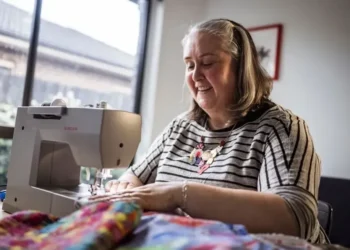A New York court has awarded a Bahamas-based property-management company US$1.6 billion against China Construction America in a long-running legal dispute over a massive tourism project in the former British colony, according to a decision released on Monday.
The case won by BML Properties Ltd involved a disagreement over Baha Mar, a 1,000-acre (404.7 hectare) project that included three hotels totalling some 2,200 rooms, more than 280 private residences, a 9,300-square-metre (100,104-square-foot) casino and a golf course designed by famed golfer Jack Nicklaus.
The project was ultimately placed in bankruptcy and later sold to its current owner, Chow Tai Fook Enterprises, a Hong Kong conglomerate.
A central question in the trial overseen by New York Supreme Court Justice Andrew Borrok was whether BML’s US$1.5 billion losses resulted from its excessive debt or from construction delays.
The Bahamas developer “more than met” its burden of proof that construction delays were to blame, the court ruled, with company representatives committing “at least four instances of fraud”.
The result, Borrok concluded, was that BML suffered damages amounting to its entire US$845 million investment. Once interest charges dating back to 2014 were added the judgment ballooned to US$1.6 billion.
CCA reportedly plans to appeal. It did not immediately respond to a request for comment.
CCA is an American subsidiary of state-owned China State Construction Engineering Corporation, the mainland’s largest construction group.
The Chinese embassy in Washington did not immediately respond to a request for comment.
The court also found that board members of the Chinese construction company failed to take their responsibility seriously and were “hopelessly conflicted” given that the firm were secretly working to acquire a competing hotel.
According to court documents, China Construction purposely slowed down the Baha Mar project even as officials told BML that the project would open on schedule by March 27, 2015, “with the knowledge that if that date was missed it would be disastrous”.
At one point, China Construction asked BML for US$54 million to pay subcontractors that, the court found, was actually used to buy the competing British Colonial Hilton hotel in Nassau.
Baha Mar, meaning “shallow water”, was announced in 2010 with financing by the China Exim Bank, construction by CCA and 70 per cent of the labour brought in from the mainland.
Groundbreaking took place in 2011. Following the bankruptcy, Chow Tai Fook bought the project in December 2017.
“I first conceived of Baha Mar more than 20 years ago, only to see it ripped out of my hands at the brink of opening by CCA,” said Sarkis Izmirlian, chairman and CEO of Baha Mar’s original developer, in a statement on Monday.
Izmirlian said the case proved that China Construction secretly cut hundreds of workers from the project in the critical final months before the grand opening, “diverted resources and key personnel to Panama to start a new project rather than finish Baha Mar”.
Court documents painted a picture of increasingly anxious CCA board member Ning Yuan asking for the firm’s parent company in Beijing to help as delays mounted before the 2015 opening, which would subject it to fines of US$250,000 a day for failing to meet the promised deadline.
The judge cited as evidence of fraud Yuan’s warning of “catastrophic losses” while the CCA board was reassuring BML that the project was on track.
“The production situation of the project is extremely severe, and if the situation cannot be fundamentally reversed, it will cause irreparable and catastrophic losses,” Yuan wrote.
The parent company should take “urgent measures immediately, quickly organise the dispatch of the additional labour force and dispatch skilled workers and experienced management personnel to the site for the final shock work,” Yuan added.
This, the CCA board member continued, would “ensure that the project’s scheduled target of full opening on March 27, 2015 can be achieved”.
Izmirlian on Monday voiced satisfaction over the ruling.
“We are grateful to have finally had our day in the US judicial system,” he said. “And we intend to proceed with the enforcement of the judgment in an equally thoughtful and prudent manner.”
This article was rewritten by JournosNews.com based on verified reporting from trusted sources. The content has been independently reviewed, fact-checked, and edited for accuracy, neutrality, tone, and global readability in accordance with Google News and AdSense standards.
All opinions, quotes, or statements from contributors, experts, or sourced organizations do not necessarily reflect the views of JournosNews.com. JournosNews.com maintains full editorial independence from any external funders, sponsors, or organizations.
Stay informed with JournosNews.com — your trusted source for verified global reporting and in-depth analysis. Follow us on Google News, BlueSky, and X for real-time updates.














